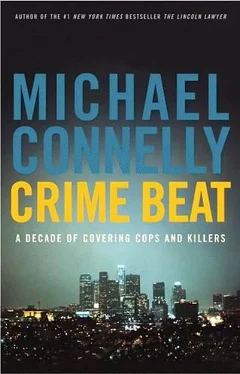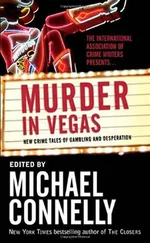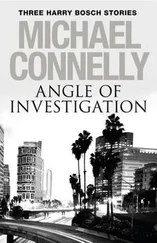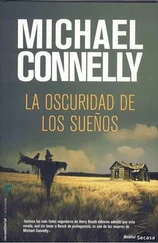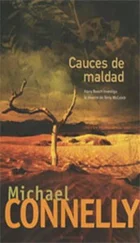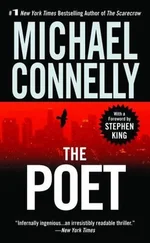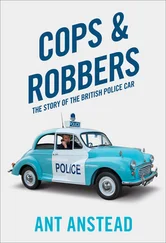
Michael Connelly
Crime Beat: A Decade Of Covering Cops And Killers
A Decade Of Covering Cops And Killers
INTRODUCTION: WATCHING THE DETECTIVES
Moments. It all comes down to moments. I have been watching the detectives for more than thirty years. It all started because of a single moment. The best things that I have seen and taken into my imagination and then seeded into my fiction came to me in moments. Sometimes I am haunted by the what ifs. What if I hadn’t looked out my car window that night when I was sixteen? What if I hadn’t seen the detective take off his glasses? What if I had gone to L.A. for the first time a day later, or I hadn’t answered the phone the time my editor called me to send me up the hill to check out a murder?
Let me try to explain. Let me try to tell you about a few of these moments.
When I was sixteen years old I worked as a night dishwasher in a hotel restaurant on the beach in Fort Lauderdale, Florida. The place stayed open late and the pots and pans that were used to cook in all day had to be soaked, scrubbed and cleaned. I often didn’t get out of that place until late.
One night I was driving my Volkswagen Beetle home from work. The streets were almost deserted. I came to a red light and stopped the car. I was tired and just wanted to get home. There were no other cars at the intersection and no cars coming. Thinking about running the light, I checked both ways for cops and when I looked to my left I saw something.
A man was running. He was on the sidewalk, running full speed toward the beach, in the direction I had just come from. He was big and bearded with bushy hair down to his shoulders. He wasn’t a jogger. He was running either to or from something. He wore blue jeans and a lumberjack shirt. He was wearing boots, not running shoes. Forgetting about the traffic light, I watched the man and saw him start to peel off his shirt as he ran, revealing a printed T-shirt underneath. He pulled the outer shirt off and then bundled it around something he had been clutching in his hand. Barely breaking his stride, he shoved the shirt into the interior branches of a hedge next to the sidewalk and then kept going.
I made a U-turn when the light changed. The running man was a few blocks ahead of me. I drove slowly, following and watching him. I saw him duck into the doorway of a bar called The Parrot. It was a bar I was familiar with. Not because I had ever been inside – I was too young. It was familiar because on numerous occasions I had noticed the line of motorcycles parked in front of it. I had seen the big men going in to do their drinking there. It was a place I was wary of.
I drove by The Parrot and made another U-turn. I went back to the hedge and parked my bug. I looked around, then quickly got out. At the hedge I stuck my hand into the branches and retrieved the bundled shirt. It felt heavy in my hands. I unwrapped it. There in the shirt was a gun.
A charge of fear and adrenaline went through me. I quickly rewrapped the gun and put it back in its place. I ran to my car and I drove away.
But then I stopped at a phone booth. When I reached my father and told him what I had just seen and done and discovered, he told me to come pick him up. He said we were going to call the police and go back to the hedge.
Fifteen minutes later my father and I were at the hedge when two police cars, with blue lights flashing from their roofs, pulled up. I told the officers what I had seen and what I had done. I led them to the gun. They told me there had been a robbery nearby. The victim had been shot in the head. They said the running man sounded like the guy they were looking for.
I spent the next four hours in the detective bureau. I was interviewed and reinterviewed by detectives, one in particular who was gruff and had a no-nonsense air about him. He told me that the victim might not make it, that I might end up being the only witness. Because of my description of the running man, several men with long hair, beards and printed T-shirts were pulled out of The Parrot and taken to the police department to stand in suspect lineups. I was the one looking through the one-way glass at them. I was the only witness. I had to pick the shooter.
There was only one problem. They didn’t have the guy. It had been dark out but the street was lighted. I clearly saw the man who stashed the gun and knew they didn’t have him. Sometime between when I saw him duck into The Parrot and when the police came to round up patrons fitting my description, the shooter had slipped away.
This did not sit well with the detectives. They believed they had the guy. They believed that I was simply too scared or intimidated to make the ID. I could not convince them and after going back and forth with the gruff detective for what seemed like hours it ended badly. My father demanded my release and I left the department with that detective thinking I had been too afraid to step up. I knew he was wrong but it didn’t make me feel any better. Although I had been honest, I knew I had let him down.
I started reading the newspaper after that night. Religiously. At first it was to look for stories about the shooting. The victim survived, but I never heard from the detectives again and I wondered what had happened to the case. Was the shooter ever identified? Was he ever caught? I also became fascinated with the crime stories and the detectives working the cases. South Florida was a strange place. A torrent of drug money was flooding the coast. Fast boats and cars. Smugglers were moving into the best neighborhoods. Crimes of violence happened everywhere at any time. There seemed to always be a lot of crime stories to read.
I got hooked. Soon I was reading true-crime books and then crime novels. In the years that followed I discovered the work of Joseph Wambaugh and Raymond Chandler. And eventually I decided I wanted to be a writer. I wanted to work for a newspaper on the crime beat. I wanted to watch and learn about the detectives and then one day write about them in novels. All because of a moment, all because I had looked out my window.
Many years later I returned to the detective bureau where I had spent those hours and disappointed those detectives. When I returned it was as a reporter. I was on the police beat and I would visit the bureau almost daily, my assignment to chronicle the crimes of the city.
The gruff detective was still there. The years in between had sanded down his edges a little bit. At first I ignored him and he didn’t remember me. Eventually, though, I told him who I was, reminded him of that night and once more made my case; that they didn’t have the shooter, that the running man had gotten away. He still didn’t believe me. He still believed I had been afraid that night to step up.
Over the course of a few years I was often in that detective bureau but I never won the detective over. It pained me but didn’t deter me. In fact, it was in that detective bureau that the next important moment occurred.
It was a small thing but perhaps the single most important thing I ever saw as a crime writer. And it is recounted here in the first story of this collection.
After numerous requests and lengthy negotiations that went all the way up to the chief of police, I was granted complete access to the homicide squad for one week. Full access. I was given a pager and if the homicide squad got called out, then so would I. My assignment was to write about life in homicide, to get the inside look.
The irony of crime beat journalism – maybe all of journalism – is that the best stories are really the worst stories. The stories of calamity and tragedy are the stories that journalists live for. It gets the adrenaline churning in their blood and can burn them out young, but nevertheless it is a hard fact of the business. Their best day is your worst day.
Читать дальше
